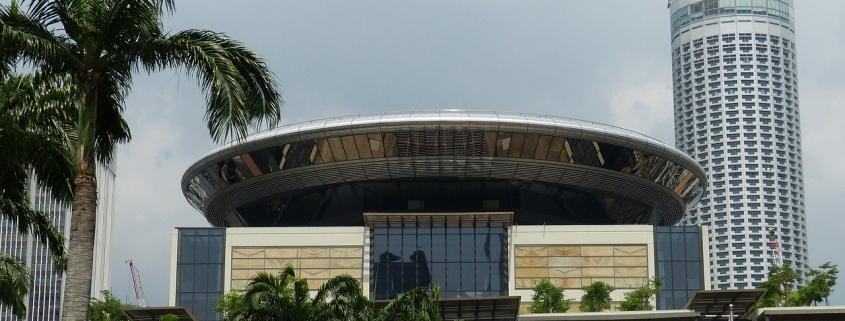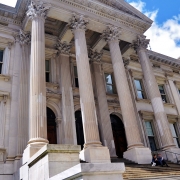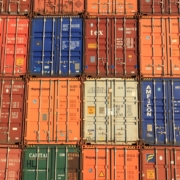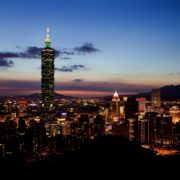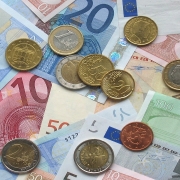What is Singapore’s Foreign Policy?
Topic of Study [For H1 History Students]:
Section B: Essay Writing
Theme II: Cold War in Asia [1945-1991] – Singapore’s Foreign Policy during the Cold War
“We have no eternal allies, and we have no perpetual enemies. Our interests are eternal and perpetual, and those interests it is our duty to follow.”
— Lord Palmerston, House of Commons, 1 March 1848
What is a ‘foreign policy’?
It refers to a set of strategies employed by the state to protect its domestic and international interests. A ‘foreign policy’ affects the state’s interactions with other states. Ultimately, the policy is implemented to safeguard national interests.
Foreign policies can involve the use of aggressive (military force) or non-coercive means (diplomacy). Also, these policies can also be carried out through engagement with other states in addressing a common challenge, such as regional security threats.
Singapore’s foreign policy: A summary
There are two key foreign policy theories that are covered the A Level H1 History syllabus: Survival and Realism.
1. Survival
One key ideology that shaped Singapore’s foreign policy is the concept of survival. Following the sudden Separation that led to Singapore’s independence in 1965, the government had to deal with political threats and economic challenges.
Amidst the Cold War context, the rise of Communist insurgencies was a common concern that affected the political stability of Southeast Asian nations. In Singapore, the government was challenged by the Barisan Sosialis.
As for the economic viewpoint, the People’s Action Party (PAP) took the first step towards modernisation by embarking on state-led industrialisation. In particular, the government aimed to establish strong trade ties with other countries, including Great Powers like the USA.
The historical roots of Singapore’s political ideology of survival lie in the events following the country’s ejection from Malaysia in 1965. Survival in both political and economic terms for newly independent Singapore was a very real issue for the PAP Government. The government in the period 1965-67 was involved in an intense, often violent struggle, for power against the Barisan Sosialis and the communists.
…In terms of economic policy, the survival ideology is linked with the concept of the “global city” first proposed in 1972 by Singapore Foreign Minister S. Rajaratnam. This concept suggests that if Singapore is to survive, it must establish a relationship of interdependence in the rapidly expanding global economic system.
An excerpt from “SINGAPORE: Reconciling the Survival Ideology with the Achievement Concept” by Lee Boon-Hiok [from the Southeast Asian Affairs 1978]
2. Realism
Realism describes the notion that states should act according to their best interest. From a realist’s perspective, the world is in a constant state of anarchy. Individuals are inherently egoistic and will do anything to pursue power. As such, states should protect their interests through means like the development of an independent defence force as well as the conduct of diplomacy.
Singapore’s interpretation of such a concept and practice was spelled out by Lee Hsien Loong in the same speech as follows:
This policy depends on the competing interests of several big powers in a region, rather than on linking the nation’s fortunes to one overbearing partner. The big powers can keep one another in check and will prevent any one of them from dominating the entire region, and so allow small states to survive in the interstices between them. It is not a foolproof method, as the equilibrium is a dynamic and possibly unstable one, and may be upset if one power changes course and withdraws. Nor can a small state manipulate the big powers with impunity. The most it can hope to do is to influence their policies in its favour.
An excerpt from “Singapore’s Foreign Policy: Coping with Vulnerability” by Michael Leifer
More importantly, Singapore did not rely solely on the goodwill of external powers to manage security challenges. Its emphasis on regionalism and multilateralism was also another vital channel, seen in terms of Singapore’s diplomatic role in ASEAN and the United Nations.
Through Singapore’s consistent lobbying efforts at the United Nations General Assembly, the government was successful in publicise the Cambodian conflict at the international level.
Singapore’s Ministry of Foreign Affairs distinguished itself as a diplomatic dynamo during the course of the Cambodian conflict. The advocacy, lobbying and drafting skills of its officials were employed to great effect within the United Nations against Vietnam and its client government in Phnom Penh. For example, the declaration of the International Conference on Kampuchea held at the UN in 1981 was drafted by Singapore’s delegation. Singapore’s diplomatic success was accomplished through playing on the political sensibilities of states that had been alarmed by the example of a government despatching its army across an internationally recognised boundary to remove an incumbent administration recognised at the United Nations and replacing it with another of its own manufacture.
An excerpt from “Singapore’s Foreign Policy: Coping with Vulnerability” by Michael Leifer
What can we learn from this article?
Consider the following question:
– Assess the view that Singapore’s foreign policy was largely shaped by Realism.
Join our JC History Tuition and learn more about Singapore’s foreign policy in response to the Second and Third Indochina Wars.
The H2 and H1 History Tuition feature online discussion and writing practices to enhance your knowledge application skills. Get useful study notes and clarify your doubts on the subject with the tutor. You can also follow our Telegram Channel to get useful updates.
We have other JC tuition classes, such as JC Math Tuition and JC Chemistry Tuition. For Secondary Tuition, we provide Secondary English Tuition, Secondary Math tuition, Secondary Chemistry Tuition, Social Studies Tuition, Geography, History Tuition and Secondary Economics Tuition. For Primary Tuition, we have Primary English, Math and Science Tuition. Call 9658 5789 to find out more.

